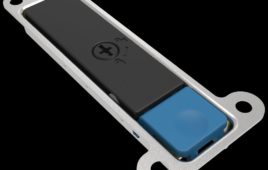There’s more work to be done.
Qualcomm this week asked the FCC for approval to extend its LTE-U tests with U.S. wireless operator T-Mobile ahead of the scheduled release of the Wi-Fi Alliance’s long-expected LTE-U coexistence test plan tomorrow.
According to the filing, Qualcomm is seeking to add an additional 12 months to its original year-long test authorization granted in May.
The company said the technical parameters of its trials have not changed – Qualcomm said it merely wants to continue work with T-Mobile on development testing for LTE-U equipment at four trial sites in Washington State, California, Nevada and Texas.
Qualcomm said 10 small cells will be used in the trial as well as up to 20 mobile stations at each location, for a total of 80 possible LTE-U capable mobile devices. The tests will be conducted on the unlicensed 5 GHz frequency band, Qualcomm said.
As before, the purpose of the testing remains to “evaluate the technical performance of pre-commercial LTE-U equipment, operating in downlink-only mode in the UNII-1 and UNII-3 portions of the 5 GHz band, in a highly controlled field environment in order to assist in the ultimate development of commercial products.”
In addition to conducting their own development trials, though, Qualcomm its intent to perform additional real-world tests at a T-Mobile facility using the Wi-Fi Alliance’s LTE-U coexistence test plan.
While the extension itself may seem unremarkable, the continued commitment to use the Wi-Fi Alliance’s test plan is notable given Qualcomm’s vocal misgivings about the validity of recent iterations of the plan.
The company in August said the test plan “lacks technical merit” and is “fundamentally biased against LTE-U.”
While less critical on a technical basis, T-Mobile has expressed frustration with the duration of the process, arguing in a July filing with the FCC that the delayed release of the test plan was “stifling innovation” that would come with the launch of LTE-U. T-Mobile had previously discussed its desire to launch LTE-U on its network by the end of the year, but noted the delays were dimming that prospect.
The Wi-Fi Alliance said last week is it on schedule to release its coexistence test plan tomorrow, Sept. 21.
Filed Under: Telecommunications (spectrums)




